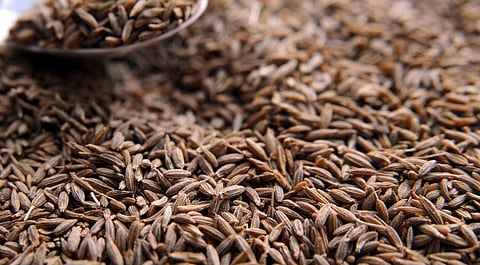
- Home
- Live Blog
- Breaking News
- Top Headlines
- Cities
- NE News
- Sentinel Media
- Sports
- Education
- Jobs

The Draft Seeds Bill, 2025, aimed at regulating the quality of seeds for sale and import, is more than what meets the eye. It can stem the dreams of farmers in the northeast region for commercial branding of their traditional seeds if relaxation to allow that is not incorporated into the final act. The proposed legislation allows farmers to grow, sow, re-sow, save, use, exchange, share or sell his farm seeds of a kind or variety registered under this Act, but it restricts their right to sell seeds as branded seeds. The central government, while seeking feedback on the bill, however, claims that the proposed legislation is aimed at facilitating the production and supply of quality seeds and ensuring farmers’ access to high-quality seeds at affordable rates, curbing the sale of spurious and poor-quality seeds, protecting farmers from losses, liberalising seed imports to promote innovation and access to global varieties, and safeguarding the rights of farmers, ensuring transparency and accountability in seed supply chains. The fine print of the draft Act shows that it seeks to install a new regulatory regime favouring corporate entities or multinational seed players, which will undermine the seed sovereignty of indigenous communities in the region. The proposed Act prohibits, from the date of its commencement, the selling of any seed for sowing and planting unless it is registered. The only exception to this blanket ban are farmers’ varieties and seeds produced exclusively for exports. A viable option for farmers growing traditional seeds in the region to conserve the seeds and plant diversity is to register these as farmer varieties under the Protection of Plant Varieties and Farmer’s Rights (PPV&FR) Act, 2001. Ironically, Union Agriculture Minister Shivraj Singh Chouhan himself admits that awareness of the PPV&FRA Act among farmers remains limited. “Even today, many farmers are unaware of the Act’s benefits. There are procedural complexities in registration that must be simplified. We also need to enhance transparency and ensure that the real benefits reach the grassroots,” he said while speaking at the ‘Plant Genome Saviour Awards Ceremony’, organised to celebrate the Silver Jubilee of the PPV&FRA Act. The draft Seeds Act defines “seed” as any type of living embryo or propagule, including seedlings, tubers, bulbs, rhizomes, roots, cuttings, all types of grafts, tissue culture plantlets, synthetic seeds and other vegetatively propagated materials, capable of regeneration and giving rise to a plant which is true to such type on which it was produced except in the case of seeds of hybrids where performance is assured for the first filial generation only and includes seeds of cereals, coarse cereals, pulses, oilseeds, fibre crops, forage and fodder crops, green manures, sugar crops, fruit, vegetables, spices, flower crops, ornamental crops and andplantation crops. The proposed law grants the state government authority to register a producer or seed processing unit if he or it meets the specifications prescribed in terms of infrastructure, equipment and qualified manpower. The provision in it which says that the central government may establish a merit-based and transparent Central Accreditation System for companies operating in multiple states and companies accredited under such a system shall be deemed to be registered under this section from the date of grant of accreditation undermines the regulatory power of the states. The draft bill unequivocally states that no application for registration submitted by an accredited unit shall be rejected on technical, financial, or infrastructural grounds, and any rejection on grounds other than forgery or material misrepresentation of the accreditation certificate shall be ultra vires the provisions of this Act. This will evidently favour large corporate entities with multi-state businesses in seeds, depriving the small state players, who will now be subjected to a strict regulatory regime and a level playing field. Experts have also cautioned against liberalised entry of genetically modified seeds under the new framework destroying the diversity of traditional seeds in regions like the Northeast, which must not go unheeded. Farmer producer companies and local seed collectives, which have been playing a crucial role in the conservation of indigenous seeds by selling those to farmers under a brand name, will now be required to register and compete with big players in the market, which is unfair and may compel farmers sowing and growing traditional varieties to heavily depend on seeds sold by large brands. The provision in the draft Act which makes Value for Cultivation and Use testing mandatory across multiple locations across the country and allows only seeds meeting germination and purity standards to be sold is likely to stifle small players, particularly those from the region. The seeds industry welcoming the draft bill is no surprise, as it seeks to facilitate ease of doing seed business, decriminalise minor offences and reduce compliance burden. The opposition to the passage of the bill into an act by farmers’ bodies cannot be ruled out if apprehensions raised by them are left unaddressed.